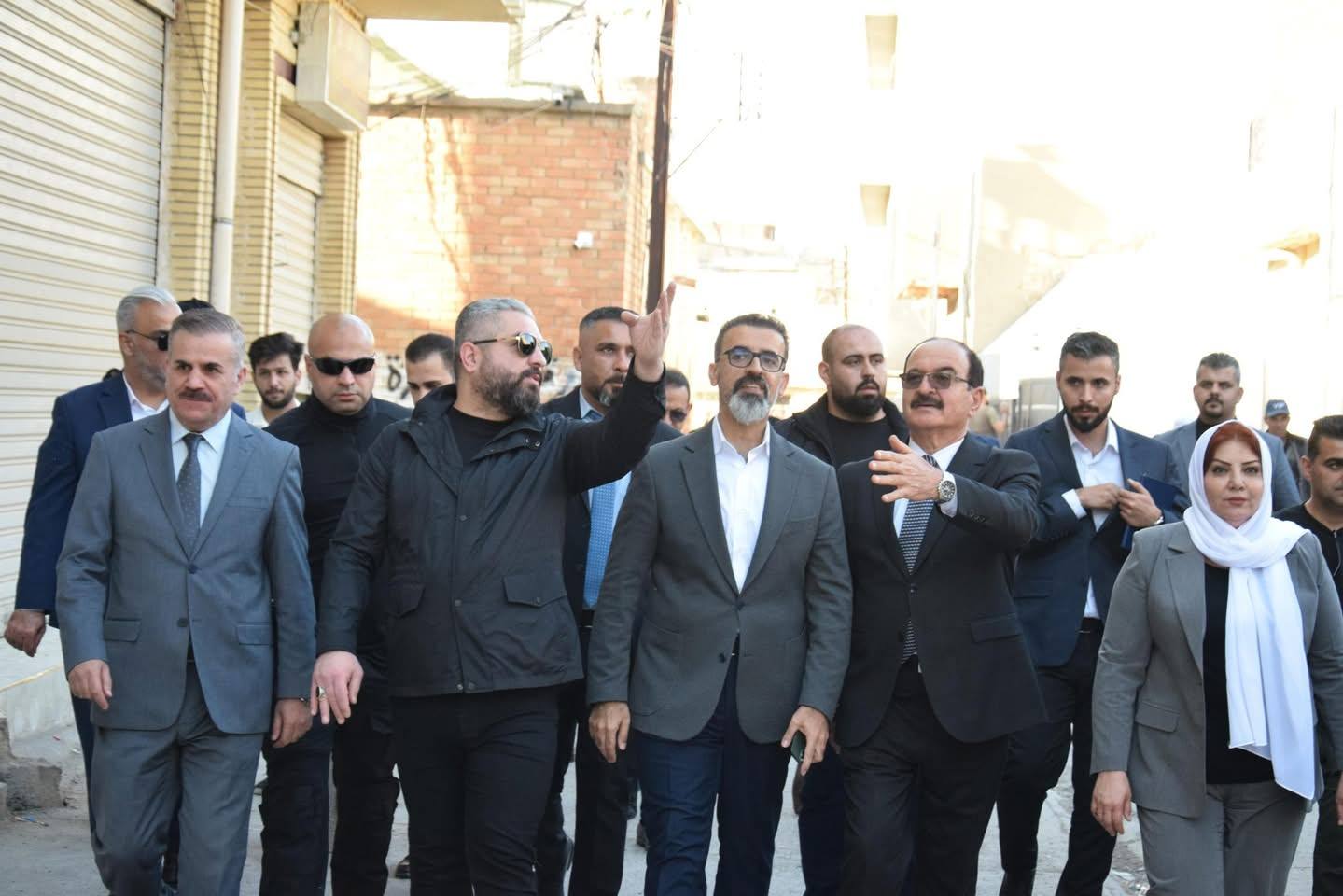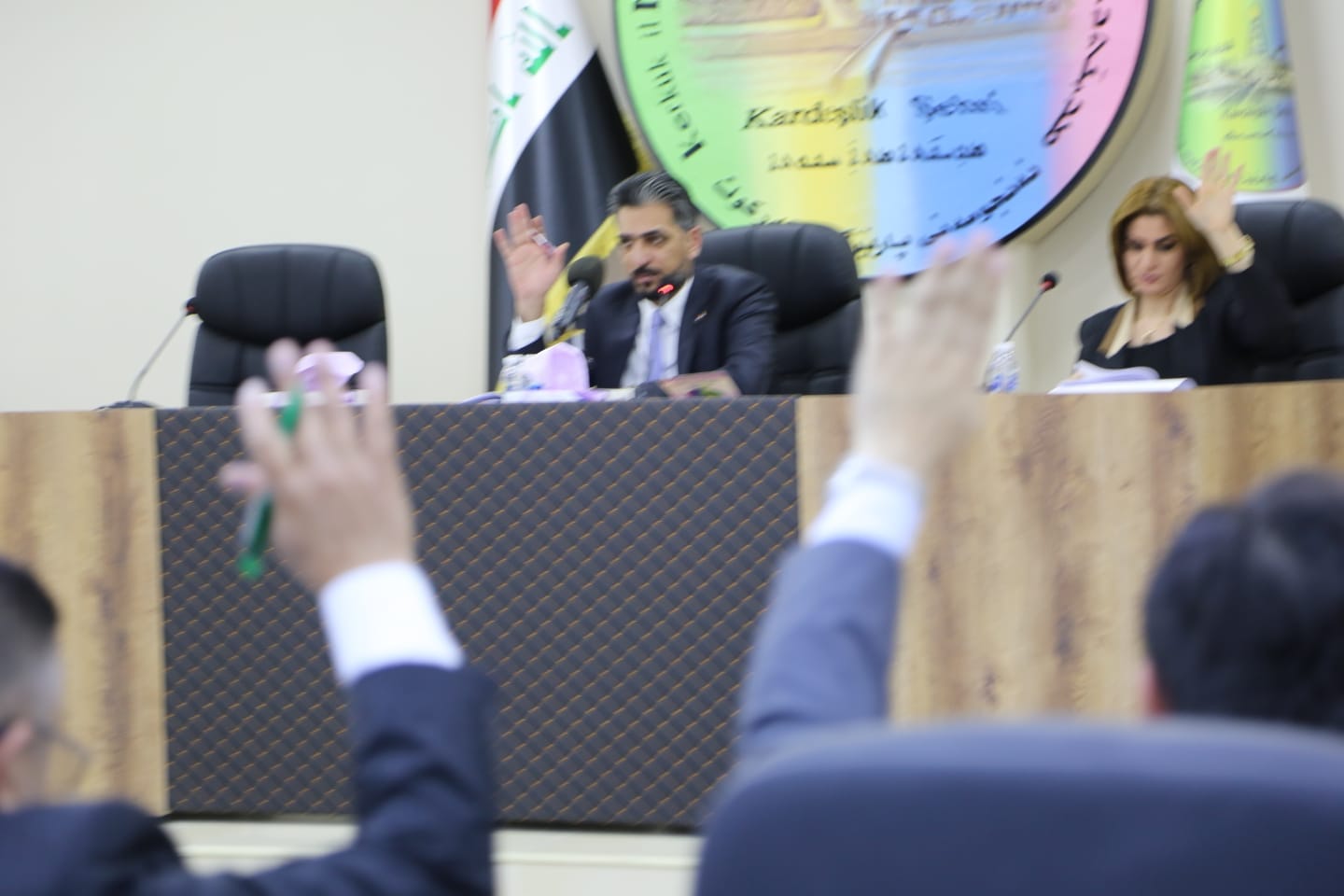The Kirkuk Provincial Office is refusing to reveal receipts and details of the purchase of several luxury Chevrolet Tahoe vehicles for Provincial Council members. It remains unclear from which budget these purchases were made.
This decision has sparked outrage among council members from the Boycott Front who were denied these vehicles.
According to Provincial Council member Ahmed Kirkuki, the vehicle purchase contracts cost "2 billion and 629 million dinars ($1.8M) for 16 vehicles for all Provincial Council members," with each vehicle costing 164 million dinars (over $100,000). However, only eight of these vehicles have been received.
A member of the provincial council from the Kurdistan Democratic Party (KDP) bloc, Shokhan Hasib, stated, "Nine council members have not received vehicles."
Information obtained by KirkukNow indicates that seven of the nine members are from the opposition front, while the other two are the head of the provincial council, who is believed to have personally declined to receive them.
The distribution of the vehicles, the denial of vehicles to members of the boycotting front, and the lack of transparency in the purchase details have caused a division among council members.
Provincial councils are tasked with overseeing local governments, but their role in Kirkuk has come into question after revelations of luxury vehicle purchases for council members without disclosing details.
Parwin Fateh, provincial council member from the Kirkuk "Our Strength and Our Will" bloc, mentioned, "Receiving vehicles is normal and our right as state employees. We are not the first to receive vehicles, and we will not be the last."
"Every government employee owns a vehicle based on their position."
Receiving vehicles is normal and our right as state employees
Regarding the purchase details and budget allocation, Fateh emphasized, "You can inquire with the governor regarding the vehicle purchase. This matter falls outside my jurisdiction as I am in the accounting department and not part of the purchasing committee."
These condemnations come amidst social media backlash accusing the local government and provincial council of using the "petrodollar budget" for vehicle purchases. This has led some council members to seek information on the budget allocated for vehicle purchases without receiving a response from the government.
Hasib stressed that all council members should be treated equally and receive vehicles. However, she expressed uncertainty about the price of each vehicle and the purchase process.
"We requested disclosure of the purchase receipts and the company from which the vehicles were purchased, but they have refused to provide this information."
Kirkuk, an oil-rich city with Iraq's second-largest oil reserves, is ethnically a mixed province with 1.7 million Kurds, Sunni and Shiite Arabs, and Turkmen. It has long been at the center of disputes between Baghdad and Erbil.

On Monday, April 7, during a visit by Kirkuk Governor Rebwar Taha and the governor's assistant, Qasim Ibrahim, to congratulate council members on Eid al-Fitr, they explained that the delayed of vehicles delivery for some members was due to issues within the company. They assured that these members would receive the vehicles later.
Hasib requested the name of the company from which the vehicles were purchased on the same day but was denied this information. The governor stated, "The funds for purchasing the vehicles come from the state budget and are not related to the petrodollar budget."
Article 17 of the Law of Governorates Not Organized into a Region entitles council members to receive monthly salaries, allowances, and benefits, including vehicles, to carry out their duties. However, concerns over new vehicle purchases for Kirkuk Provincial Council members revolve around the provincial office's reluctance to disclose the budget details and the unequal distribution among council members.
Hazhar Kakai, lawyer and observer of the Kirkuk Provincial Council, emphasized the need to investigate the vehicle purchases. He questioned the fate of previously allocated vehicles and the necessity of new purchases, suggesting that this could lead to wastage of public funds and corruption.
The Kirkuk Provincial Council, which previously consisted of 41 members, granted each member a private vehicle before the dissolution of provincial councils in 2019.
Kakai stressed that the council has the authority to oversee and must be informed about the vehicle purchases, prices, and budget sources. He noted that the petrodollar budget is meant for service projects, not vehicle purchases.
The Kirkuk provincial council consists of 16 seats; The Kurds have seven seats (five for the Patriotic Union of Kurdistan PUK and two from the Kurdistan Democratic Party KDP), six for the Arabs (three for the Arab coalition, two for the leadership, and one for the Ouruba), two seats for the Turkmen, and one last seat for the Christians.
Nashat Shahwez, a provincial council member from the Patriotic Union of Kurdistan (PUK) bloc, redirected inquiries about vehicle prices to the provincial office.
Hassan Majeed, head of the Kurdistan Democratic Party (KDP) bloc, also claimed no access to purchase details.
Qasim Ibrahim, the governor assistant and brother of head of provincial council, who purchased the vehicles, did not respond to calls for information.
Kakai criticized the lack of transparency, stating that the council should have oversight, and the local government should provide information.
Criticism has also emerged over the governor's attempt to use vehicle allocations as leverage against council members who boycott sessions. Hasib and KDP bloc accused the local government of withholding vehicles to pressure them to return to meetings.
Seven council members, including two from the KDP, three from the Arab Alliance, and two from the Iraqi Turkmen Front, consider the local government formation illegal and have not received the Tahoe vehicles. Shokhan threatened legal action if the governor's office fails to provide information within a week.
Kirkuki clarified that the vehicles were not purchased from the petrodollar budget but from Kirkuk Customs revenues. He explained the budget allocation and the process of purchasing the vehicles. Fateh highlighted that even boycotting members are entitled to vehicles, which are government property.
Hazar Kakai suggested that the Integrity Commission should intervene in the matter to address the confusion among the executive, oversight, and legislative branches in Kirkuk. He emphasized the need for transparency and accountability to prevent misuse of public funds.





